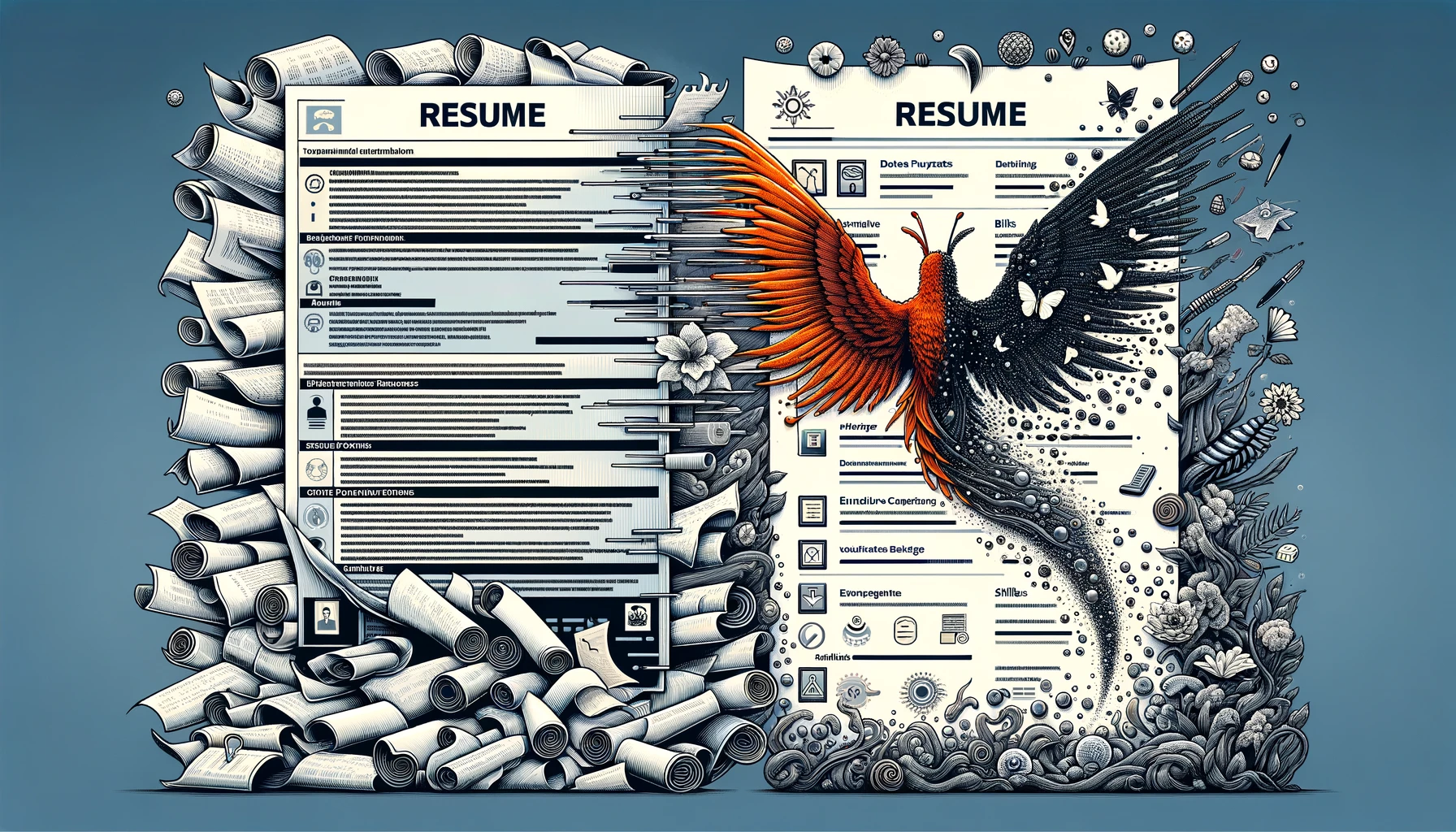Landing your first job can seem daunting, especially if you have yet to gain prior work experience to showcase on your resume. However, there are ways to craft an impressive resume, even if you are starting in the job market. Follow these tips to highlight your skills, education, and attributes to make your resume stand out.
Focus on What You Do Have
When you have no conventional work history, obsessing over what’s missing from your resume is easy. However, experienced hiring managers know not to expect extensive job histories from recent grads or young professionals. So, instead of fixating on the blank spaces, focus on putting your best foot forward with what you have to offer.
Did you gain any skills from college coursework that apply to your desired roles? What about leadership experience from clubs or athletics? Academic projects and volunteering are also great features. Anything with initiative, responsibility, collaboration, or other desirable traits should go on your resume.
Quantify Your Achievements
Don’t just state what you accomplished – add numbers, stats, or concrete details that quantify the results. For example, instead of “Helped organize club fundraiser,” say “Coordinated logistics for club fundraiser generating $1,500 in donations.” This gives tangible proof of your abilities. Even simple achievements can sound more impressive with the correct description.
Expand on Your Education
Your education section is valuable for real estate on your resume when you need a work history. Provide your major, minor if applicable, graduation date or projected graduation, academic honors, study abroad programs, and any specialized coursework or projects relevant to the job. Don’t just list basic facts – highlight accomplishments that showcase your work ethic, leadership, technical skills, or other attributes a hiring manager wants to see.
List Relevant Coursework
Many recent grads need to include coursework in their resumes. However, showing classes aligning with the target job illustrates your skills and knowledge. Review the job description and list classes that demonstrate applicable expertise. For example, economics, statistics, marketing, and accounting are good to include in a financial analyst role. Avoid generic course titles like “English 101” unless they directly relate to the position.
Showcase Transferable Skills
The lack of direct experience in a particular field shouldn’t discourage you from applying for roles you can excel at. Think about skills built through previous jobs, classes, activities, or hobbies that translate to your desired position. For a marketing job, highlights from your role as rugby club president about managing a social media strategy and growing the club’s follower base could demonstrate applicable experience.
Create a Skills Section
A skills section organized with bullet points is an effective resume strategy when you have a limited work history. It provides an easy way for hiring managers to see that you possess the abilities needed for the job despite your short or nonexistent career thus far. Ensure the skills you list align with those mentioned in the job description. Common categories include technical skills, computer skills, languages, interpersonal skills, and industry-specific skills.
Example:
-Technical Skills: R, Python, MATLAB, LaTeX
-Computer Skills: Microsoft Office, Adobe Creative Suite
-Languages: Fluent in English, Proficient in Spanish
-Interpersonal Skills: Communication, Collaboration, Leadership
-Industry Skills: Budget Tracking, Client Relations, User Research
Highlight Relevant Projects
Class assignments, passion projects, and pro bono work demonstrate initiative even if you weren’t paid for them. Provide brief descriptions of projects that showcase skills, knowledge, or achievements relevant to the target position. Follow this structure:
Project Name | Type of Project
Key Contributions & Achievements
For example:
Search Engine Optimization Analysis | Class Project
-Performed keyword research and on-page optimization for local small business website
-Achieved top 10 Google ranking for ten high-value keywords within one month
This provides tangible evidence of skills that a hiring manager cares about.
List Applicable Volunteer Work
Volunteer work and community service activities that allowed you to develop functional abilities or gain valuable experience should be included on your resume. Short-term roles are still worth mentioning. For example, if you helped build houses with Habitat for Humanity, you can say skills like teamwork, construction, and communication.
Just like with paid work, describe your volunteer roles using focused, accomplishment-oriented bullet points:
-Fundraised over $5,000 in donations as walkathon team captain with the American Cancer Society.
-Developed organizational and event planning skills as director of a local food bank’s holiday gift basket program.
Even if unpaid, relevant volunteer work can strengthen your resume and show you have initiative.
Get Specific with Bullet Points
Bullet points are ideal for briefly communicating your accomplishments and abilities. Whether you’re listing paid roles, unpaid experience, skills, or projects, use bullet points with focused, descriptive statements:
-Increased social media engagement by 15% in 6 months through creative content and influencer partnerships.
-Applied collaborative conflict resolution strategies to unite teams divided over event budget cuts.
Specificity is key. Vague bullet points with overused clichés like “team player” or “detail-oriented” won’t cut it. Provide concrete examples that prove you possess the skills and qualities needed for the job.
Leverage Internships
Internships directly relevant to your target field are the holy grail for new grads’ resumes. Even if unpaid, they provide a professional experience to list. Paid internships are even better. Just like with standard jobs, list the company name, title, employment dates and use bullet points to quantify your contributions:
Social Media Marketing Intern, Epic Marketing Agency (May-August 2022)
-Created and managed social media campaigns reaching 2 million impressions in 2 months
-Tracked campaign performance daily using Google Analytics and generated bi-weekly reports
If you held leadership roles in the internship program or received performance awards, highlight these achievements. Internships show you have field experience beyond the classroom.
Include Leadership Positions
Include these on your resume if you held titled leadership roles in college clubs, sports teams, Greek life, or other campus organizations. For example:
Vice President, Pre-Law Society (Jan 2022 – Dec 2022)
-Planned eight campus events per semester with an average turnout of 75+ students
-Managed a 15-member executive board and delegation of event responsibilities
-Increased club membership by 20% through social media outreach and recruitment campaigns
Leadership positions demonstrate desirable soft skills like organization, responsibility, motivation, and teamwork. Companies want employees who can take initiative and manage groups.
Be Concise Yet Comprehensive
Refrain from excessively expanding on irrelevant entries to take up space. But you do want to provide an accurate picture of your well-rounded background. Find a healthy medium between concise and comprehensive. For example, mention noteworthy high school achievements like captain of the debate team or founder of a community service club, but keep them limited to 1-2 bullet points each.
Steer clear of fluff, like listing hobbies or soft skills that can’t be backed up with evidence. Each resume entry should highlight hard skills, measurable achievements, or traits you can prove based on the rest of your credentials.
Explain Employment Gaps
If you have significant gaps between jobs or education, address these in your resume summary. For example, if you took two years off between high school and college to care for a sick parent, provide a brief explanation demonstrating maturity and personal responsibility. This clears up any questions hiring managers might have.
For shorter gaps, ensure start and end dates are included for each listed role or program. You don’t need to explain a summer off between college semesters. However, unexplained multi-year gaps could raise eyebrows if not addressed.
Create a Strong Resume Summary
With no work history section, the resume summary takes on greater importance. Use 2-4 sentences at the top of your resume to highlight impressive academic achievements, leadership experience, internships, trademark skills, and career goals. This provides an overview of your most robust credentials.
Keep it short, but make every word count by only emphasizing relevant experiences and skills that make you qualified. Tailor your summary to use keywords from the job ad. Most importantly, explain how your background makes you the ideal candidate.
Get Feedback on the Layout
Without conventional experience sections, the layout of your resume takes on more weight. Ensure it remains skimmable for recruiters by strategically organizing your content into readable sections.
Education at the top is standard, followed by either skills or experience sections, depending on your strengths. Break up dense blocks of text with bullet points, italics, bold fonts, and whitespace.
Have a career counselor at your school look over the layout. They can ensure it effectively highlights your qualifications in the best format for your situation.
Pick a Professional Font and Theme
A clean, simple resume template is best when you want the content to stand out. Opt for a standard font like Arial, Times New Roman, Calibri, or Garamond. 10-12 pt size is ideal for readability.
Your choice of template colors and designs depends on the industry and company culture. Traditional black and white is universally acceptable. But a touch of color can also grab attention if it matches the tone of the roles you’re applying for. Just avoid anything too flashy or hard to read.
When formatting, focus on consistency and balance. Keep styling for your name, headings, companies, and institutions. Align bullet points for a cohesive look. The overall appearance should look professional and organized.
Check for Typos
Careless resume errors can eliminate you from consideration for positions you’re otherwise qualified for. Always proofread for typos, grammatical mistakes, and inconsistencies in formatting or dates. Ask someone else to review it with fresh eyes as well.
Read through your resume backward sentence-by-sentence to catch issues you might otherwise gloss over. Run spellcheck, but rely on something other than technology. Double-check anything identified as incorrect.
Bring Printed Copies to Interviews
You’ll almost always email a PDF resume during the job application process. But for interviews, bring neatly printed copies. This shows preparedness and allows you to reference your resume when needed.
Use high-quality resume paper and print multiple copies if you meet with various people. Please put them in a professional folder or binder, not loose sheets. Your interview attire should match the level of professionalism displayed in your resume.
Apply Strategically
You may need to submit more applications than applicants with conventional work histories before landing interviews. But avoid the temptation to apply anywhere and everywhere. Submit targeted applications for roles where you meet the minimum qualifications and align with the job description.
Quality over quantity gives you the best odds of getting calls back. Customize your resume and cover letters to fit each application. Recruiters can tell when you blast out generic applications, which reflects poorly.
Network and Follow-up
When you need work experience, getting your foot in the door often requires going beyond just submitted applications. Attend industry events, join alum groups on LinkedIn, and do informational interviews to build connections. With networking, you can find unlisted opportunities and insider tips for positions with companies you want to work for.
Following up shows drive. If you are still waiting to hear back after applying, please email the hiring manager asking if they received your resume and expressing continued interest in the role.
The job search process can be demoralizing even for experienced professionals. When just starting, patience and persistence are vital. But with a focused job search strategy highlighting your education, transferable skills, and early achievements, you can write an impressive resume that secures exciting new career opportunities—the first job leads.





